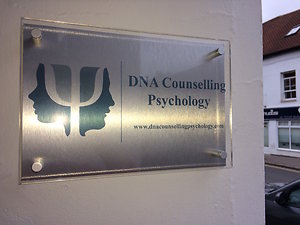Counselling, Psychotherapy and Psychology
What is the difference between a Counselling Psychologist and a Counsellor?
Where Counselling Psychology differs is that it provides a contemporary transition between traditional counselling services and the medical model of clinical psychology and psychiatry. This allows the therapist to bring both a highly academic and expert knowledge of Psychology to their practice, achieved in part through their own advanced research. They will also have vast and comprehensive experience of therapeutic practice, including a minimum of 160 hours of their own personal therapy and 500 hours of clinical experience gained in various placement settings.
Their practice is heavily grounded within core theoretical frames in which a sophisticated assessment and treatment plan can be made of the client's issues by drawing on the DSM-5 Diagnostic Manual of Mental Disorders. What makes a Counselling Psychologist different to a Clinical Psychologist is that there is less emphasis on the medical model and diagnosis and more on working with the therapeutic experience of the client.
Whilst, unlike some therapists/counsellors who train specifically in one theoretical orientation for example Cognitive Behavioural Therapy or Gestalt Therapy, a Counselling Psychologist will have practised and trained in a number of different orientations. Whilst this does not make them an expert in any one field, it allows, along with the academic psychological background, to have a number of tools available which enables them to work in an integrative way with clients presenting issues. Each therapist will have their own particular interests and natural bias towards one particular orientation in which they may ground their counselling style. But their training enables them to adapt and draw on other theories and tools, which assists them in working with more complex needs.
For further information see www.bacp.co.uk or www.bps.org.uk
What is the difference between counselling and psychotherapy?
Although Counselling and Psychotherapy overlap considerably, there are also recognised differences:
Counselling tends to be more short term, where the focus is on specific problems and or current life changes. The work generally focuses on mobilising the strengths and strategies you have available to help you deal with what is going on for you at the time.
Psychotherapy is more long term as it addresses problems that are more deep-seated, complex or enduring and may take more time to work through. For example: habitual patterns of thinking, feeling, and acting formed in early life may give rise to problems later on when our circumstances are different: they become outmoded and no longer serve our best interests. Therapy is aimed at unveiling the origins of such patterns and restructuring the personality in a more beneficial way.
In both cases, the safe and trusting relationship between therapist and client is seen as the vehicle for change.

